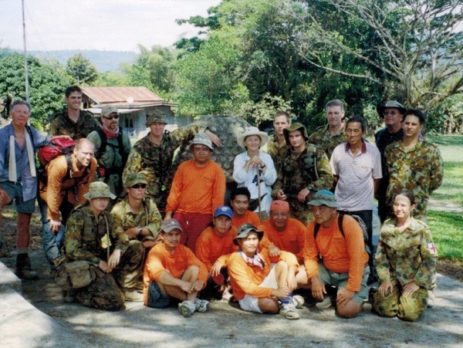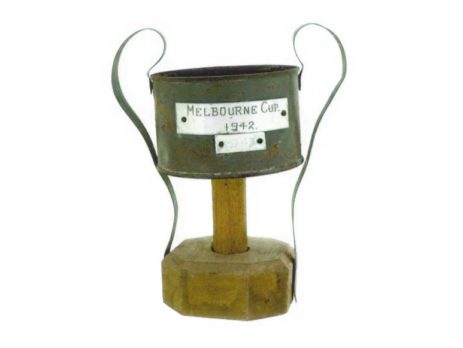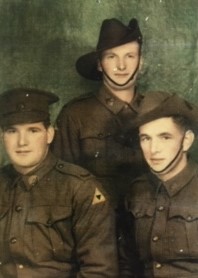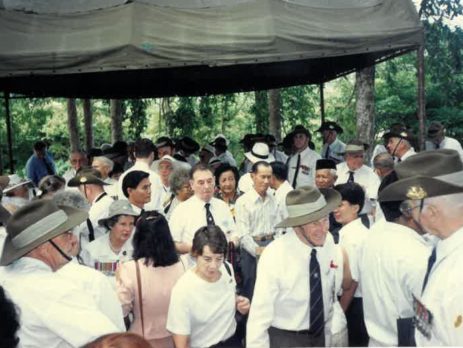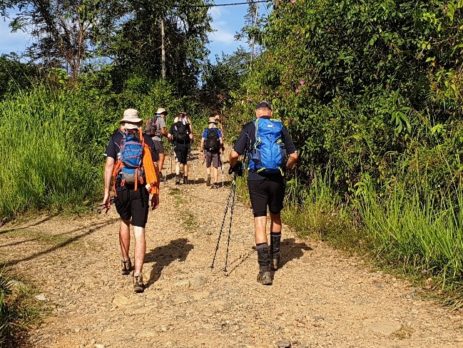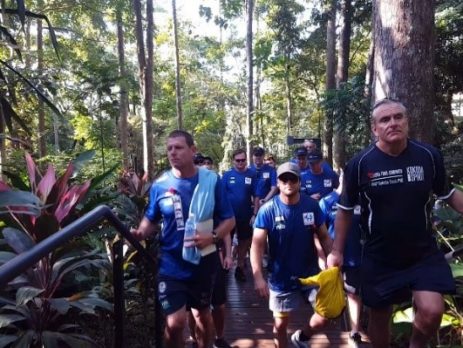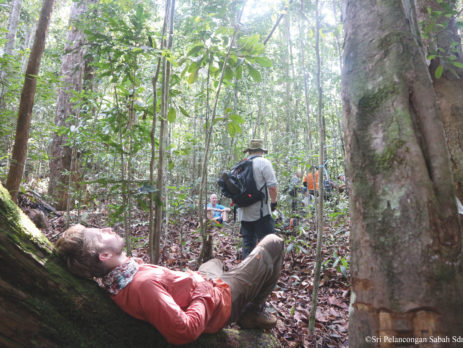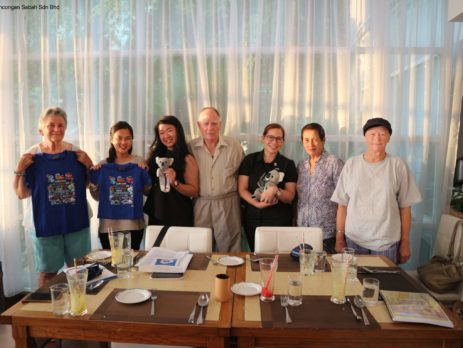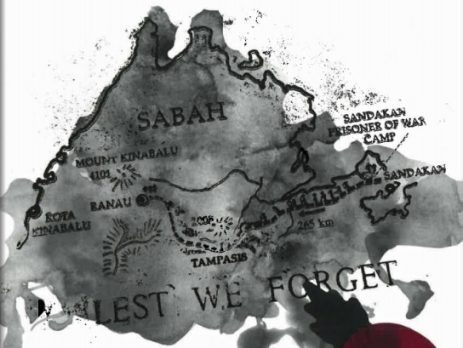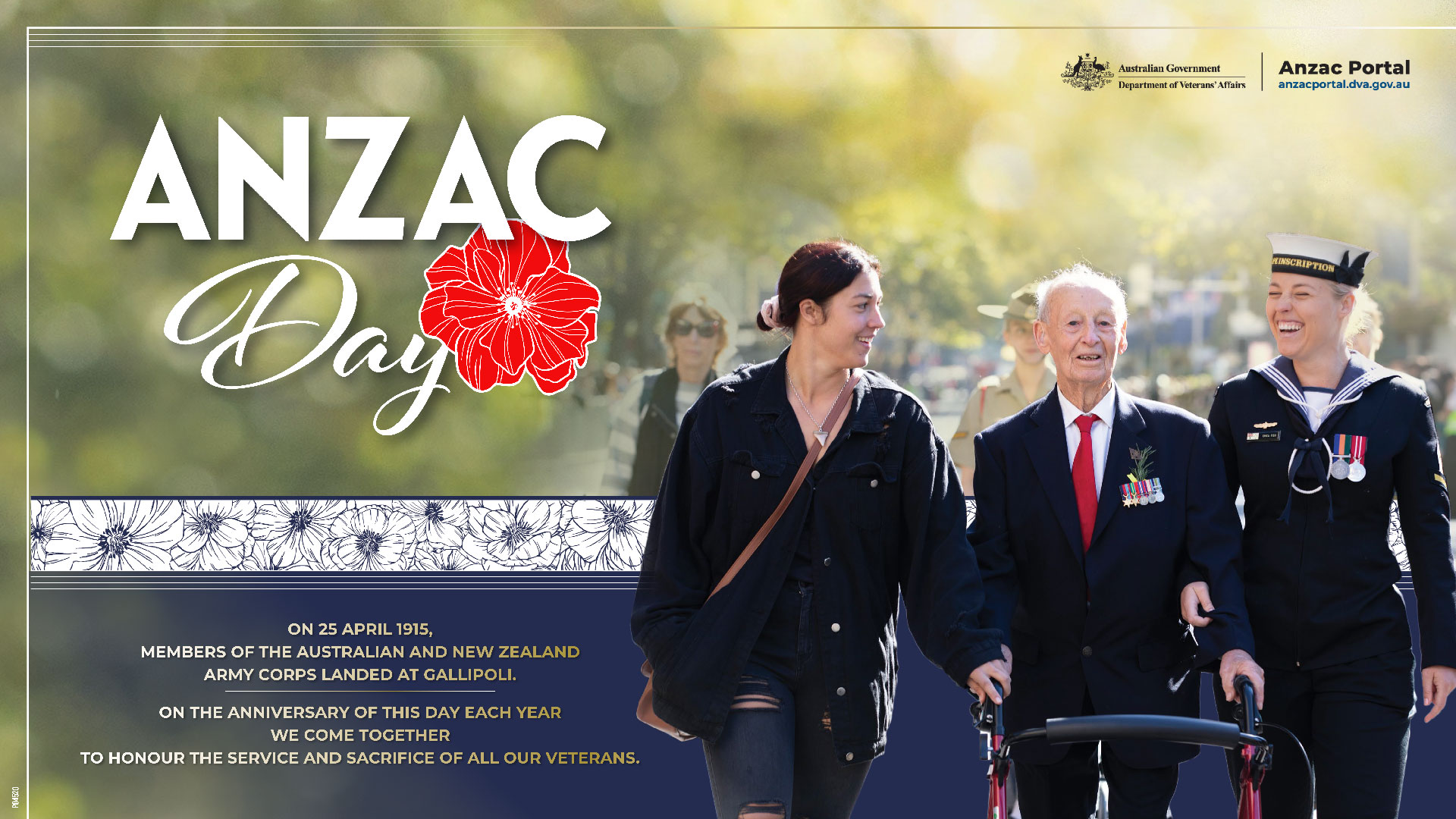
2023 Anzac Day Dawn Service
Sandakan Memorial Park
Courtesy Bus Passenger Register
A courtesy bus service will be available for those attending the 2023 Anzac Day Dawn Service at the Sandakan Memorial Park at 05:30 am on Tuesday 25 April 2023.
Those choosing to use the courtesy bus service will be transported from the following locations;
Collection point 1 – Harbour Mall, Sandakan
Pick up and return will be from the area shown on the map below (behind the Harbour Mall Sandakan) to and from the Sandakan Memorial Park.
- On Tuesday 25 April 2023, passengers need to assemble in the piazza as shown on the map below. by no later than 04:00am as the buses will depart promptly at 04:10am
- The buses will return to the pick-up point, departing from the entrance to the Park at approximately 08:30am, following the complimentary gunfire breakfast provided at the conclusion of the dawn service.
Collection point 2 – Sabah Hotel (Km 1, Jalan Utara, 90000 Sandakan, Malaysia)
Pick up and return will be from the front of the Sabah Hotel to and from the Sandakan Memorial Park.
- On Tuesday 25 April 2023, passengers need to assemble in the piazza as shown on the map below. by no later than 04:10am as the buses will depart promptly at 04:20am.
- The buses will return to the pick-up point, departing from the entrance to the Park at approximately 08:15am, following the complimentary gunfire breakfast provided at the conclusion of the dawn service.
Please list your name and if possible a contact number on the Bus Registration Form available at hotel reception and collect your return transport voucher at the same time to ensure a seat on the courtesy bus is reserved for you.
You should do this on or before 1600pm Monday 24 April 2023.
PLEASE NOTE: There is limited seating available of 32 seats. Please ensure that you retain your bus ticket for the return transport to the pickup points.

Background
Almost 2500 Australian and British prisoners of war were held in a camp at Sandakan during World War 2. Almost all perished by 1945, which is 1400 at Sandakan and the remainder on death marches or at Ranau, in Sabah’s interior. At war’s end, six Australians, who escaped and were cared for by villagers, were the sole survivors. No one survived at Sandakan. The last man left alive at the camp was beheaded on the morning of 15 August, five hours before Japan surrendered.

Sandakan Day Memorial 2020
Video produced and contributed by Dr Arthur Chung
Sandakan and the Death Marches
During 1942-43, the Allied prisoners of war were transferred to Sandakan from Singapore by the Japanese to build a military airstrip. They were imprisoned at a camp near Mile 8, now the site of the Sandakan Memorial Park.
Between January and June 1945, more than 1000 malnourished POWs were force-marched to Ranau, 260 kilometres from Sandakan. About half died on the way, killed by the effects of the mountainous jungle terrain, tropical illnesses, malnutrition and brutal treatment by their guards. Anyone who could not keep up was killed. Those who survived this gruelling ordeal succumbed to starvation and illness at the destination camps. Sandakan’s 1400 remaining prisoners, too weak or ill to be moved, died at the camp in appalling conditions.
Local people, who remained loyal to the Allied cause, also suffered terribly. Many were executed. It is estimated that 14 per cent of Sabah’s population died under Japanese rule, from starvation and brutal treatment.
On 15 August 2020, the 75th anniversary of the end of World War 2, we invite you to tune into a live streaming of a simplified service, to remember all those who suffered and died.
Lest We Forget.
Stories / Articles
Messages
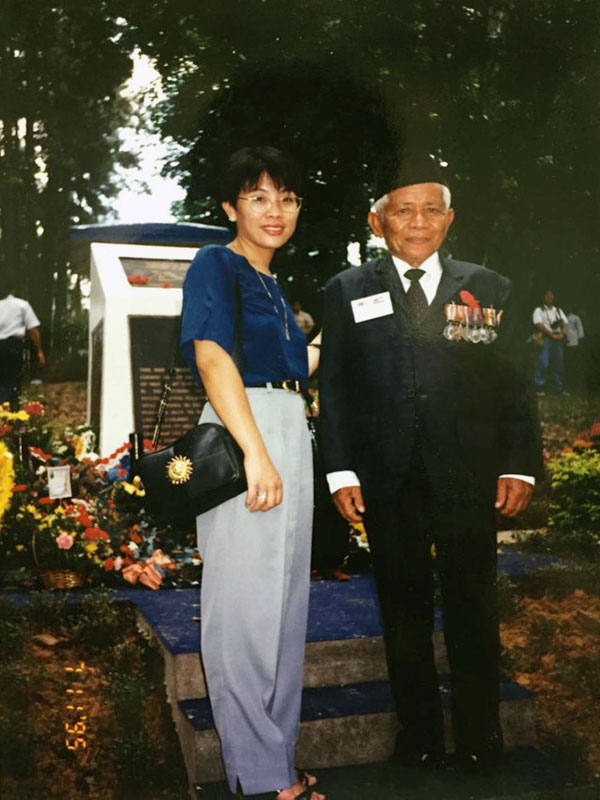

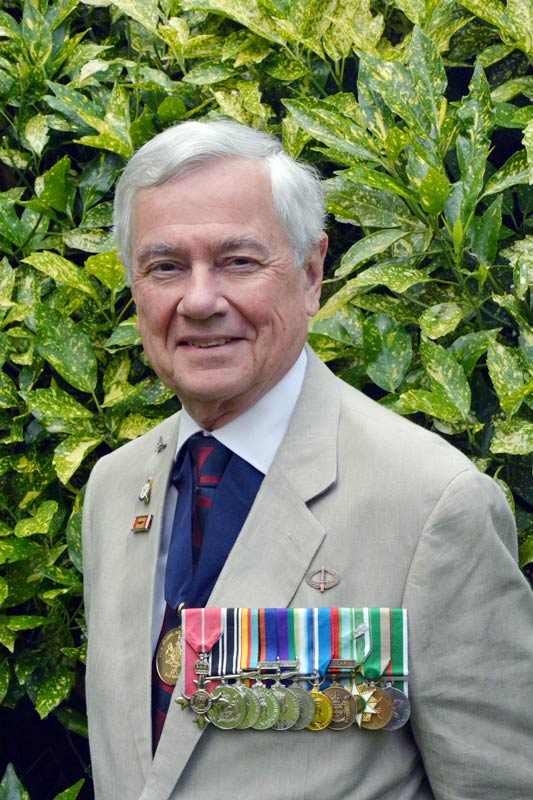
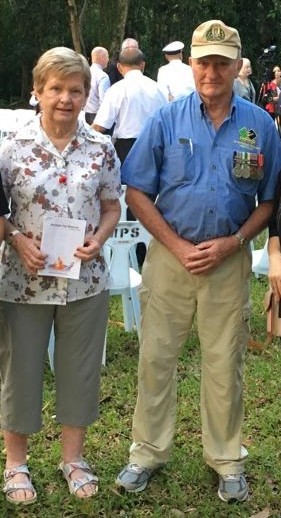
Remembering those who suffered so much during those terrible years. We sincerely hope the spirit of The POW’s and their native “helpmates” dwell in peace “ Below The Clouds of North Borneo”. Bill Merchant
One very special memory I have of Sandakan Memorial Day is Mr. Gordon Ellice-Flint, a Sandakan POW singing “Going Home”. Annette Merchant
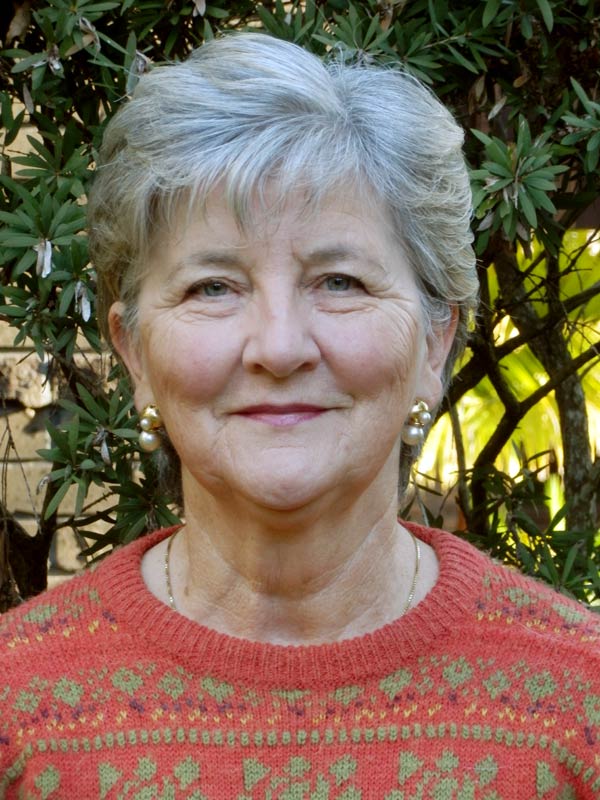
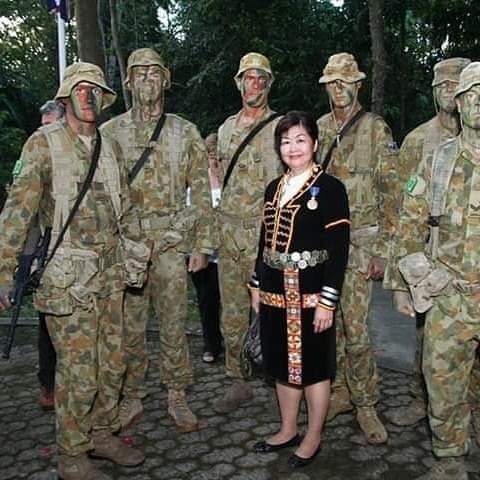

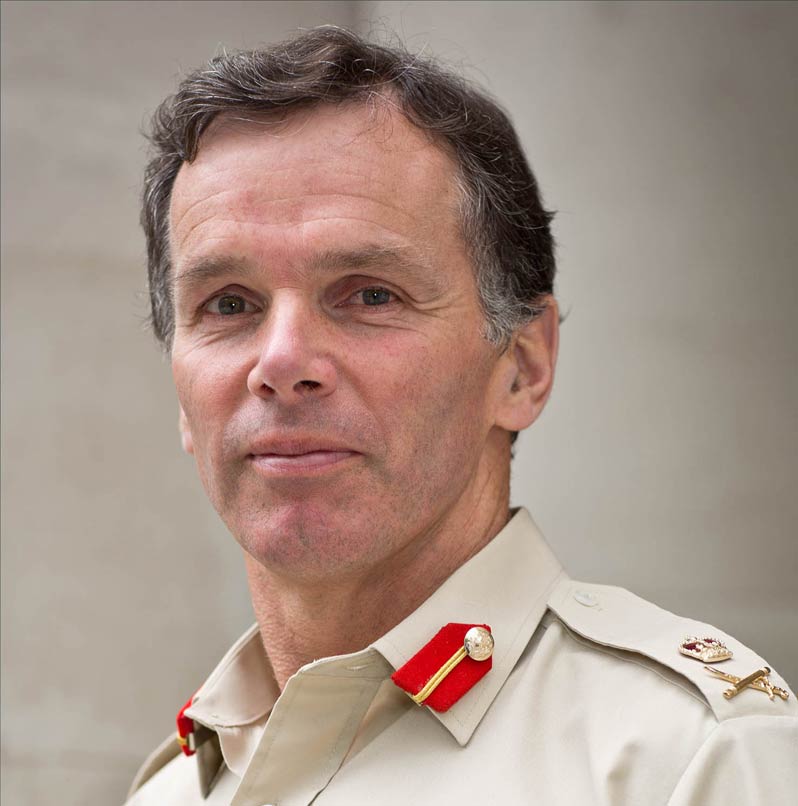
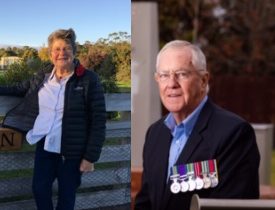

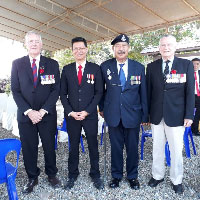
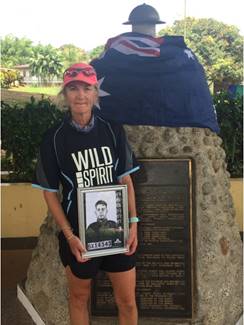
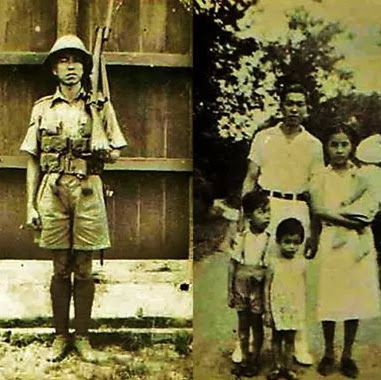
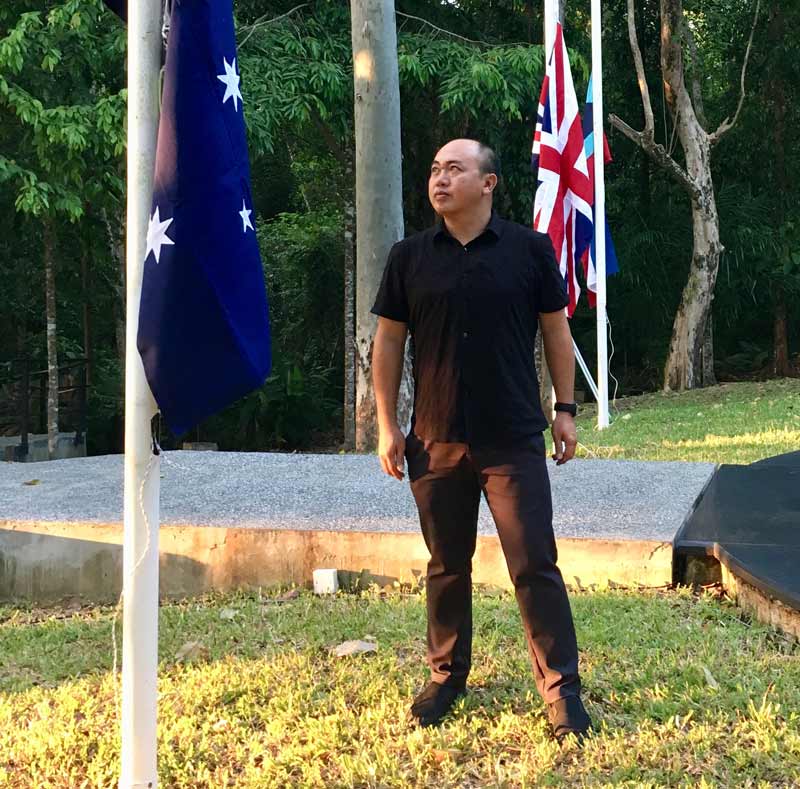
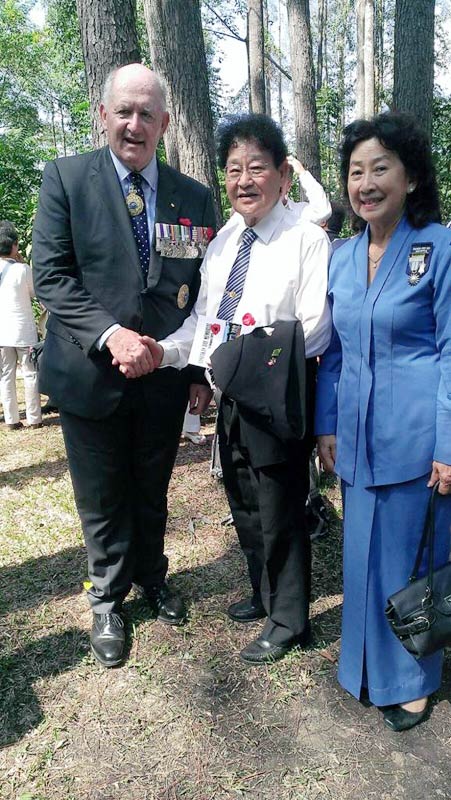
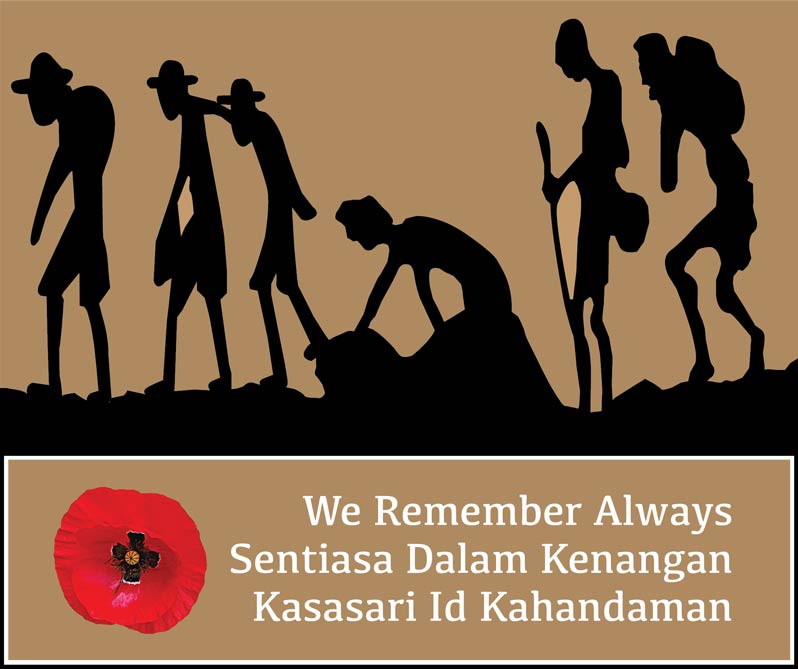
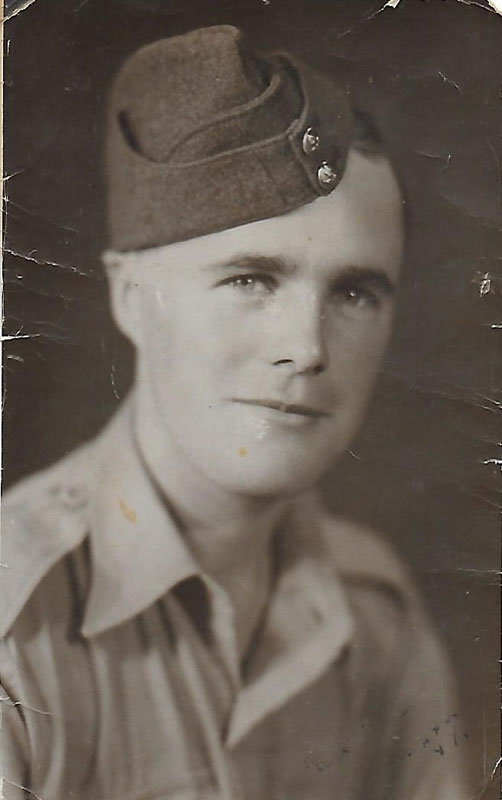
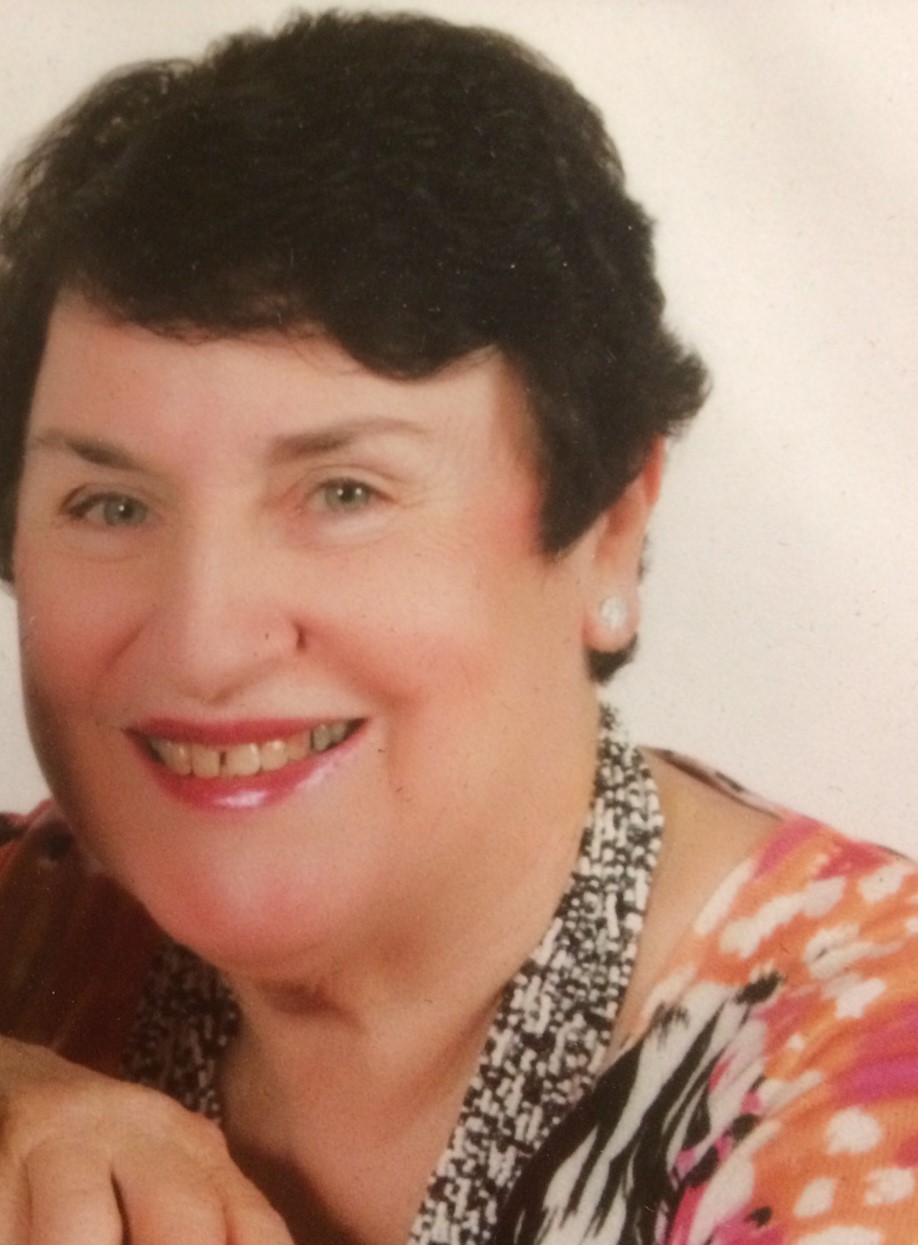
It was indeed my great privilege as The Australian Representative of Sabah Tourism Board to escort many FAMILY MEMBERS, FRIENDS of SANDAKAN FAMILIES, AUSTRALIAN MEDIA and HISTORIANS to SANDAKAN for ANZAC and SANDAKAN DAY SERVICES.
In 2015 A replica of SANDAKAN MELBOURNE CUP and the MELBOURNE CUP 2015 visited Sabah in conjunction with former POW Bunny Glover completing a unique Sandakan Day Service.
Many thanks for the privilege and the memories I will carry with me always Gwenda Zappala
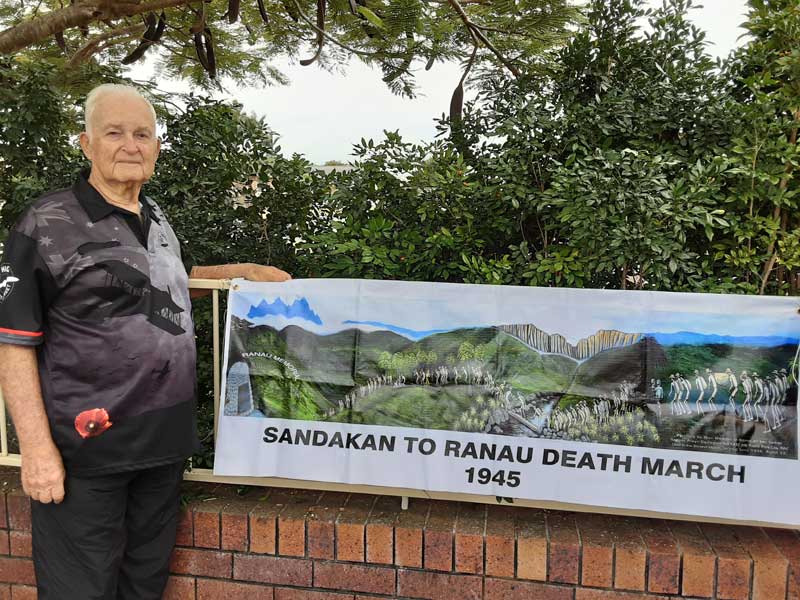
"In these uncertain times we are forced to come together, spiritually, to commemorate Sandakan Day, the hardships and tragedies of war.
To honour and pay homage to FAMILY, FRIENDS and MATES who did not come home.
Forever in our hearts, never to be forgotten.
LEST WE FORGET". Mick J. Smith
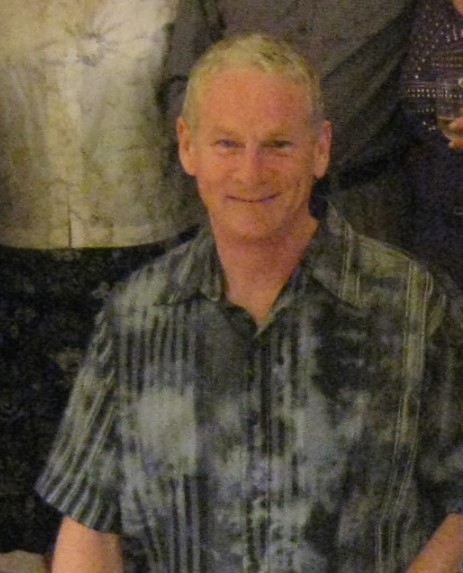
My father, Leslie Bunn Glover transferred to the AIF in February 1941. A year later he was fighting as Singapore fell in WWII.
Bunny, as he was affectionately known, was transferred to Sandakan in ‘B’ Force. Then part of the few prisoners transferred to Kuching after 17 months at the POW Camp.
I returned to the Camp with him in 2008, his first successful trip back and an emotional one, to visit a place of memories (mostly bad, some good).
He was the last surviving Sandakan POW from Queensland and returned a few times to thank the Sabahans. Michael Glover
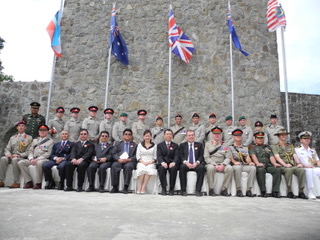
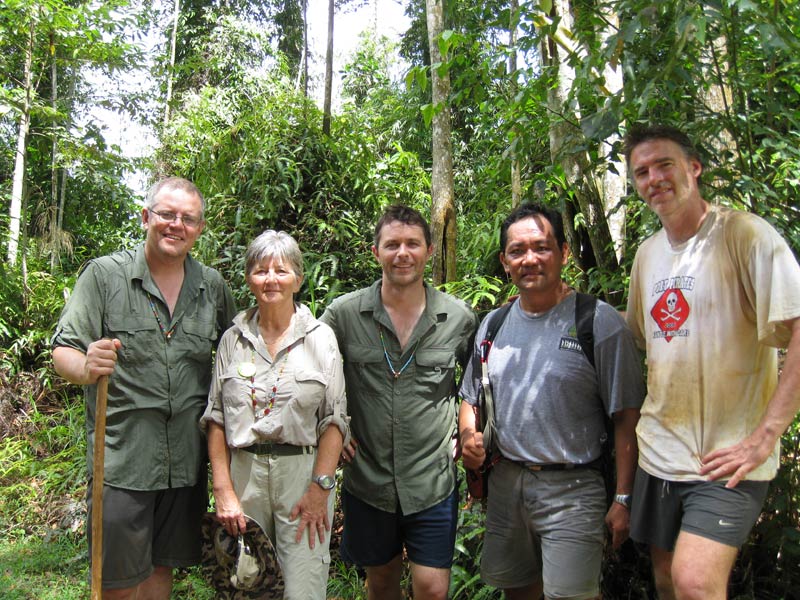
2020 sees the 75th years of Sandakan Ranau Death March commemoration in which the route was traced and first walked through in August 2005 after the Sandakan Day ceremony; that was the 60th year of commemoration. Historically a breakthrough, the route was walked through also by the present Australia Prime Minister MP, Mr Scott Morrison, in 2011 with his friends; the former Minister of Defence MP Mr Jason Clare and Independent MP Mr Robert Oakshott. In this 75th year of commemoration, let’s remember the spirits of the fallen soldier- be them the Australians or British.
LEST WE FORGETTham Yau Kong
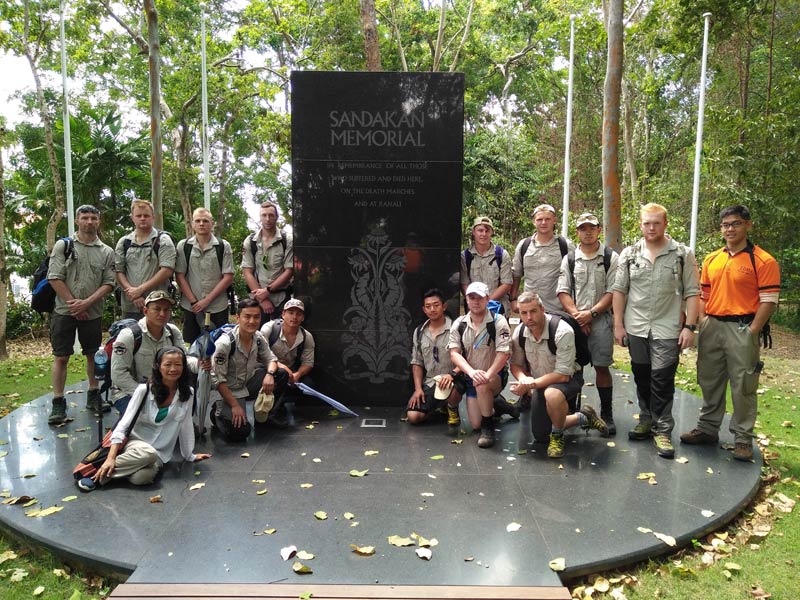
2020 is the 75th commemoration of Sandakan Ranau death marches. Remembering in the year of 2016 when I first walked the whole track from Sandakan to Ranau, I learnt so much history and actually “felt” what the POWs had gone through back then and I was overcome with sad and painful emotion. It was an unforgettable experience for me and I wish more people get to know that we have such history that happened here in Sabah.
"LEST WE FORGET" Tham Kim Leng

I was a member of the Commonwealth Brigade called ANZUK force in Singapore in the mid 1970s.
Hence, I am very interested in Sabah\'s WWII history & attended many services at Sandakan Memorial Park.
We will remember them all - the British, Australian & Sabahan - all played their parts. Datuk Mike Steel
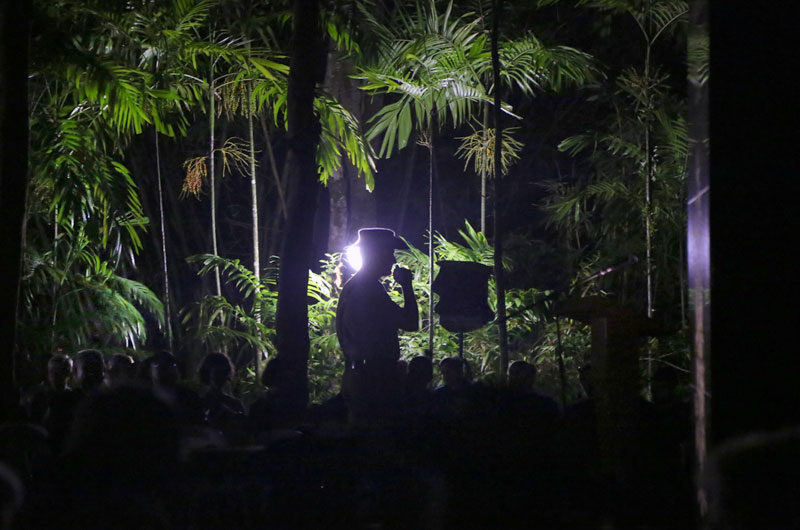
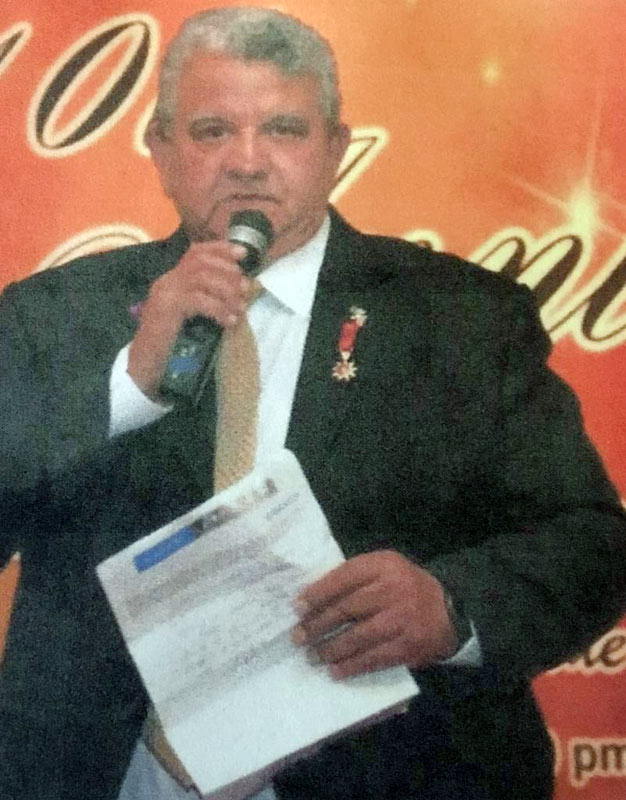
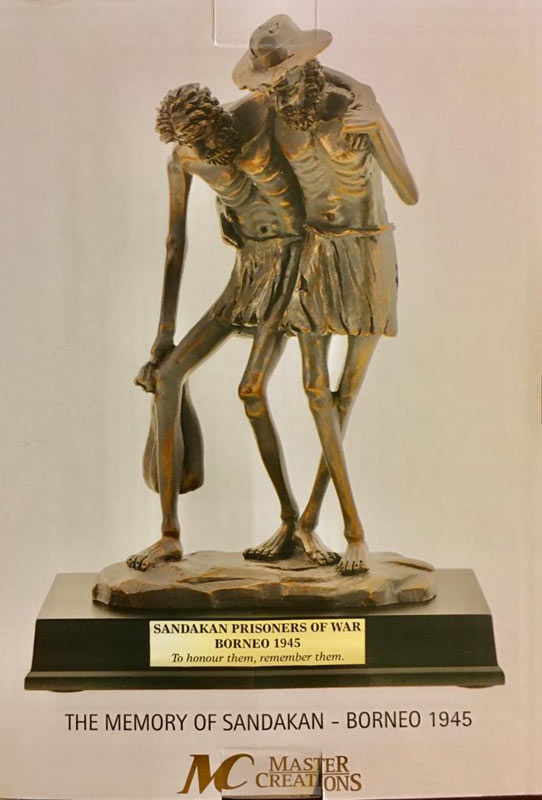

Blessed 75th Anniversary of the Sandakan Death March.
Thank you for your sacrifice..
Thank you for our freedom...
Irene JohnnyVideo produced and contributed by Dr Arthur Chung.
"Going Home" sung by Robert Gordon Ellice-Flint of 8th Division 2nd Australian Imperial Force Sandakan - Kuching Prisoner of War camp. Video produced and contributed by Mr Peter Kue.


